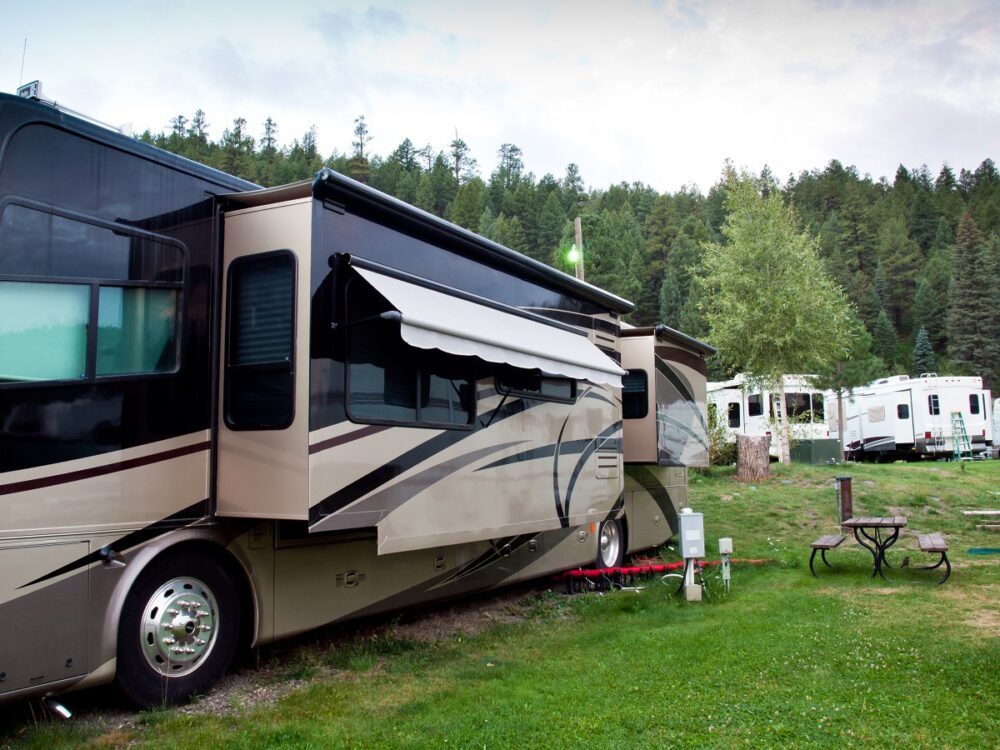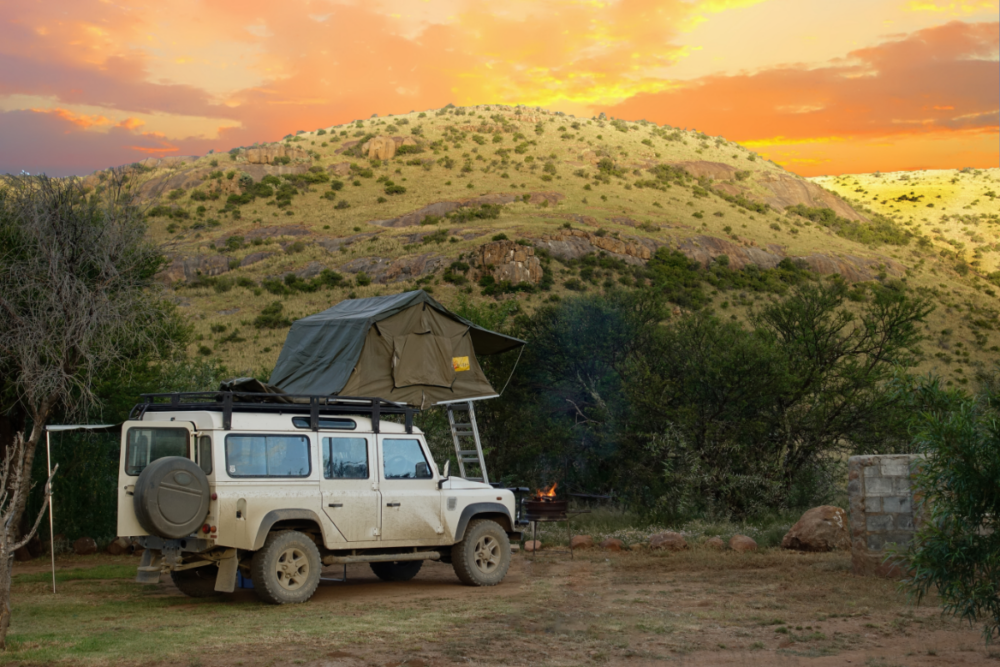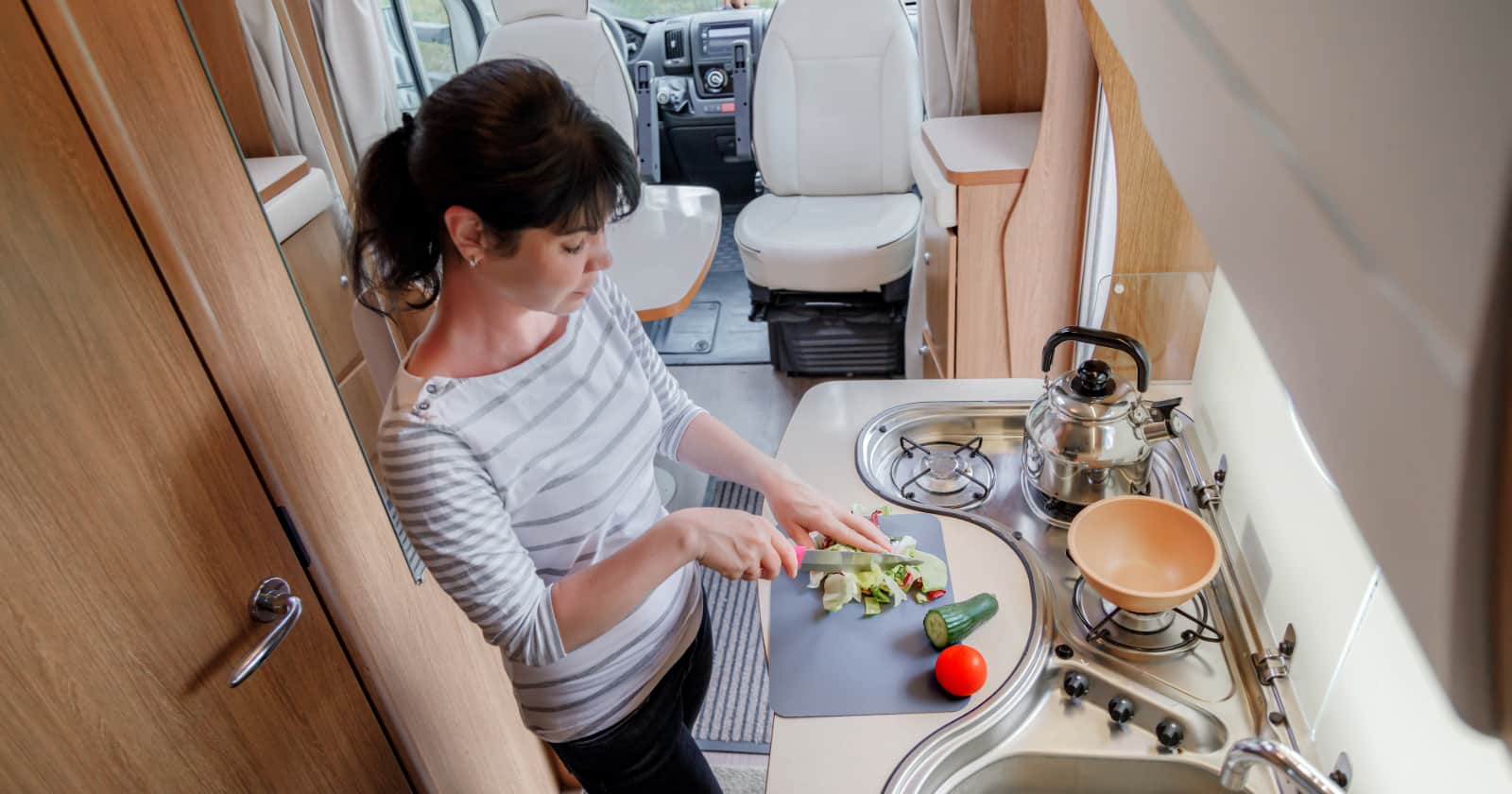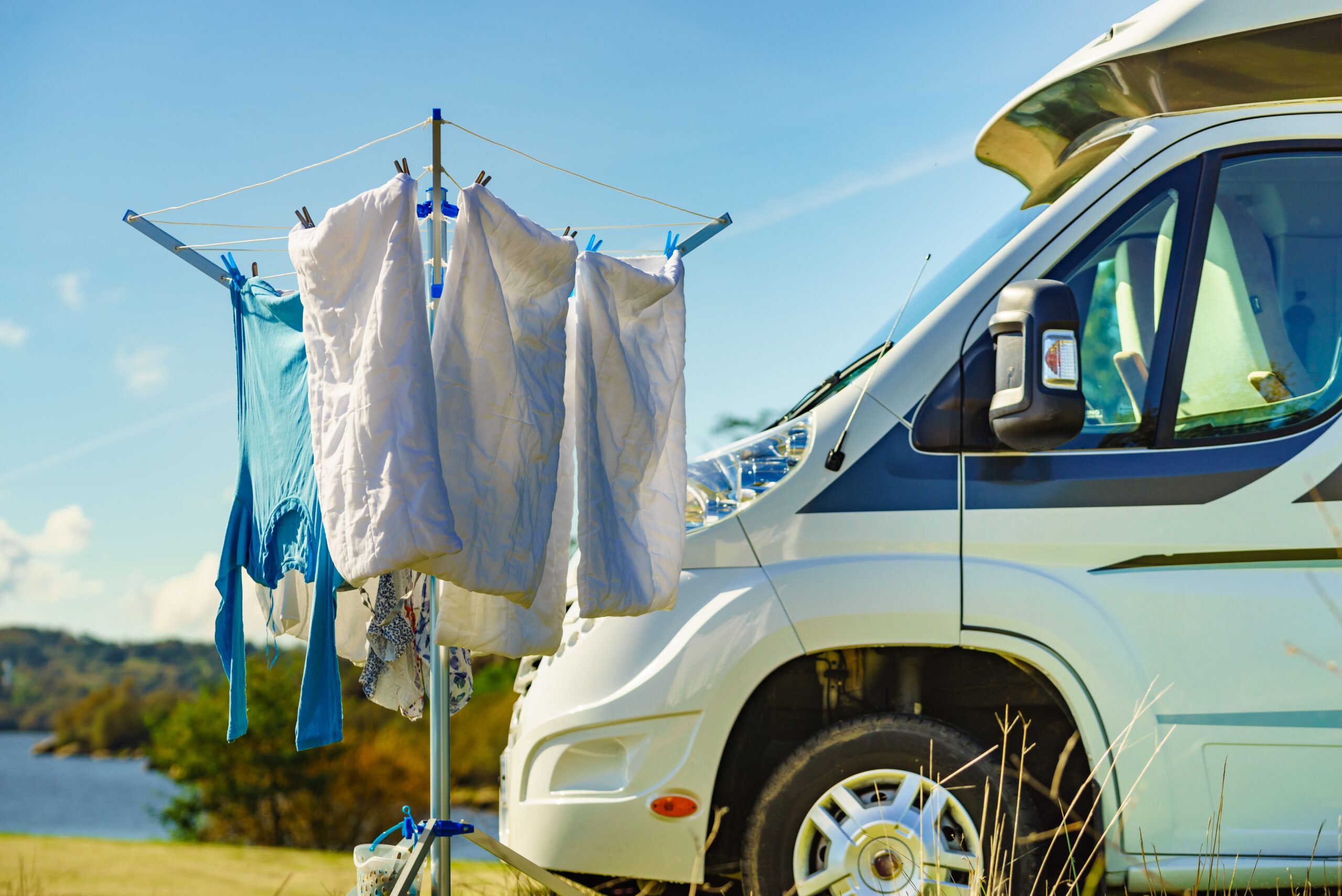Is Overlanding Right For You?
Getting away from it all, traveling from place to place, and seeing the country. These words probably make you think of RVing, but there’s a chance you thought of a different word: overlanding.
Both RVing and overlanding have a decent amount of overlap. Maybe you’ve asked yourself what the difference is. Let’s take a closer look at both and find out just what the difference between them is.
Start with the Basics: What is RVing?
“RV”, as you almost certainly know, stands for Recreational Vehicle, with “Vehicle” being one of the defining features of RVing. When you’re RVing, you’re driving or towing something that also functions as a home, or at the very least, as a tent. Camper vans, motorhomes of all varieties, travel trailers, and pop-up campers are all examples of RVs.
RVs are equipped with amenities like kitchens, bathrooms, and sleeping quarters. They can be driven or towed on the highway to different destinations. RVers will commonly stay in RV parks or other campgrounds with hookups for water, electricity, or sewage.

Some RVers practice what’s known as boondocking, also sometimes called dry camping. Boondocking is when you camp self-sufficiently, without water, electrical, or sewer hookups. RVs used for boondocking are commonly equipped with things like solar panels, generators, and extra-large water tanks.
Generally speaking, when you go RVing, the focus is on the destination. While getting to your destination can be fun, you’re probably going to be more excited about actually being there. And when RVers reach their destination, it’s not uncommon for them to spend days, weeks, or even months in one spot.
So Then, What is Overlanding?
Overlanding, like RVing, involves traveling in a specialized vehicle. But whereas many RVers like to relax in comfort at an RV park, overlanding is all about adventure. When you’re overlanding, the journey is the destination.
Overlanding involves traveling in an off-road-ready vehicle, like a 4×4 truck or even an ATV. Your vehicle may double as your living quarters, especially if you have a souped-up adventure van like The Sportsmobile Classic 4×4. But you can also sleep in a tent when overlanding.
When you go overlanding, you’ll need extensive preparation. It’s critical to pack sufficient supplies, like water and food. Plus, you’ll need gear that’s appropriate for the environment you’re in. You’ll also need to know things like routes and weather forecasts before you head out on your trip.
Surviving and exploring the wilderness is the name of the game when you’re overlanding. On an overlanding trip, you might spend weeks or even months on your journey from point A to point B. These epic journeys often span huge distances, with one of the most famous routes being from London, England to Cape Town, South Africa.
Popular overlanding routes in the US and beyond include:
- The Continental Divide – Runs over 2,500 miles along the spine of the rocky mountains from border to border.
- The Dalton Highway – An over 414-mile stretch through rural Alaska.
- The Mojave Road – A 150-mile route through rugged desert.
- The Pan-American Highway – One of the world’s longest overlanding routes. It spans over 19,000 miles, from Alaska all the way down to southern Argentina.
- The Trans America Trail – A 4,253-mile route that runs from the Atlantic coast all the way to the Pacific.
The Difference Between RVing and Overlanding
So, now that we know about both RVing and overlanding, let’s compare them.
Both have a lot in common. At their heart, they involve traveling and seeing the country, usually in a specialized vehicle. In fact, many overlanding vehicles are basically souped-up RVs.
Trip Length
But, the nature of how you travel for each is very different. For example, RV trips are usually shorter, even as short as a single weekend. On the flip side, it’s not uncommon for RVers to spend long periods in one place, especially if they are full-time RVers.
By contrast, overlanding trips are typically much longer, often lasting for several months. Overlanders won’t typically spend more than one night in the same spot.
Travel Route
When you RV, you primarily travel on highways and other paved roads. Even for RVs that can off-road, most of the journey is typically going to be on the highway.
On the other hand, the bulk of travel when overlanding is usually off-road and will involve some very challenging terrain. In fact, some overlanding vehicles, like ATVs, aren’t even highway legal.
The Focus of the Trip
With RVing, the focus is on the destination. When you’re RVing, you’re going to check out different cities, national parks, and more.
With overlanding, the challenge of navigating from point A to point B is the main point of the trip. It’s meant to be a test of your survival, exploration, and navigation skills. In many cases, overlanding is done in largely unexplored and extremely remote areas.
Preparation
RVing can also be done with much less preparation. If an RVer needs more water or other supplies, they’re usually not far from somewhere they can get them. This is a big contrast from overlanding, where you’ll need to bring all your supplies, or plan where you’ll get more supplies in advance.
In short: Overlanding is about adventure, where the journey itself is the point of the trip. Overlanding is a rewarding challenge that tests all your skills. With RVing, the focus is more on relaxation, with the destination typically being the focus.

It’s easy to get confused about the difference between RVing and overlanding. They’re similar concepts, after all.
But don’t get confused because RVing and overlanding are not the same. RVing is largely about relaxing and enjoying where you’re at. Overlanding, on the other hand, is all about adventure and overcoming challenging terrain.
Learn more
One of the best parts about RVing is engaging with the community of traveling enthusiasts. iRV2 forums allow folks to chat with other RVers online, and get other perspectives on everything RVing, including products, destinations, RV mods, and more.
Related articles:



